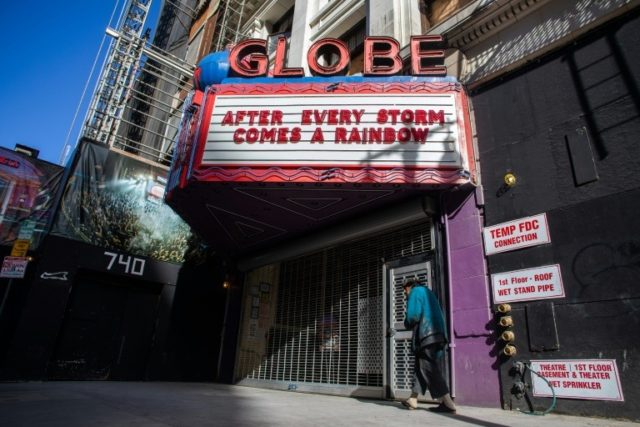Washington (AFP) – Congress and the US government were working furiously on Sunday to provide trillions of dollars in rescue money aimed at cushioning both businesses and ordinary Americans from the devastating impact of the coronavirus pandemic.
Lawmakers on Capitol Hill were nearing a deal to inject roughly $1.6 trillion into businesses and the pockets of millions of workers laid off as the Covid-19 virus continues to spread. A separate package would provide a stunning $4 trillion in liquidity to juice up the economy.
A procedural vote in the Senate on the smaller package was set for 3:00pm (1900 GMT) Sunday.
“We look forward to wrapping it up today,” Treasury Secretary Steven Mnuchin told “Fox News Sunday.”
Senate Republican leader Mitch McConnell said late Saturday that the deal was “very close.” His Democratic counterpart, Chuck Schumer, said that “to my delight and surprise there has been a great deal of bipartisan cooperation thus far.”
Mnuchin, who for days has been locked in intensive negotiations over virus-related rescue measures, also detailed a separate massive relief package being worked on to support hard-hit businesses.
Under one part of that plan a “significant package working with the Federal Reserve will have up to $4 trillion of liquidity that we can use to support the economy,” Mnuchin told “Fox News Sunday.”
Together, the urgent measures represented one of the most dramatic governmental rescue efforts outside time of war, with millions of people thrown out of work, thousands of businesses shuttered or badly suffering, travel severely curtailed and no certainty as to when things might improve.
They also came as the death toll from the pandemic continued to rise — especially in hotspots like New York City — and as local and state officials across the country warned of dire consequences in the absence of more aggressive federal action.
‘Worse is yet to come’
“The worse is yet to come,” New York Mayor Bill De Blasio said on CNN, predicting hospitals in the city would face serious shortages of protective equipment within days unless drastic action is taken.
“We expect April will be a lot worse than March and I fear May could be worse than April,” he said.
Illinois Governor J.B. Pritzker said he had seen some improvement in the flow of medical supplies, but he still had sharply critical words for the federal government’s approach.
“It is better,” he said, but hospitals were still receiving “just a fraction” of what they had requested.
Pritzker blamed in part the administration’s decision to leave the supply chain up to private companies and not intervene to take control — as US President Donald Trump has the authority to do under the federal Defense Production Act.
“Yes, we’re competing against each other” for supplies, the governor said, referring to the different states.
“You know, it’s a Wild West, I would say, out there.”
New York congresswoman Alexandria Ocasio-Cortez, an outspoken liberal, was also sharply critical of the federal response.
“The fact that the president has not really invoked the Defense Production Act for the purpose of emergency manufacture is going to cost lives,” she told CNN.
“We cannot wait until people start really dying in large numbers to start production,” she said.
Mnuchin said the relief package being voted on Sunday had three parts: it would give small businesses enough cash to pay laid-off workers for two weeks; it would provide direct cash payments to Americans (about $3,000 for a family of four, he said); and it would enhance unemployment insurance for those laid off.
It would also provide funds to support hard-pressed hospitals and medical professionals.

COMMENTS
Please let us know if you're having issues with commenting.